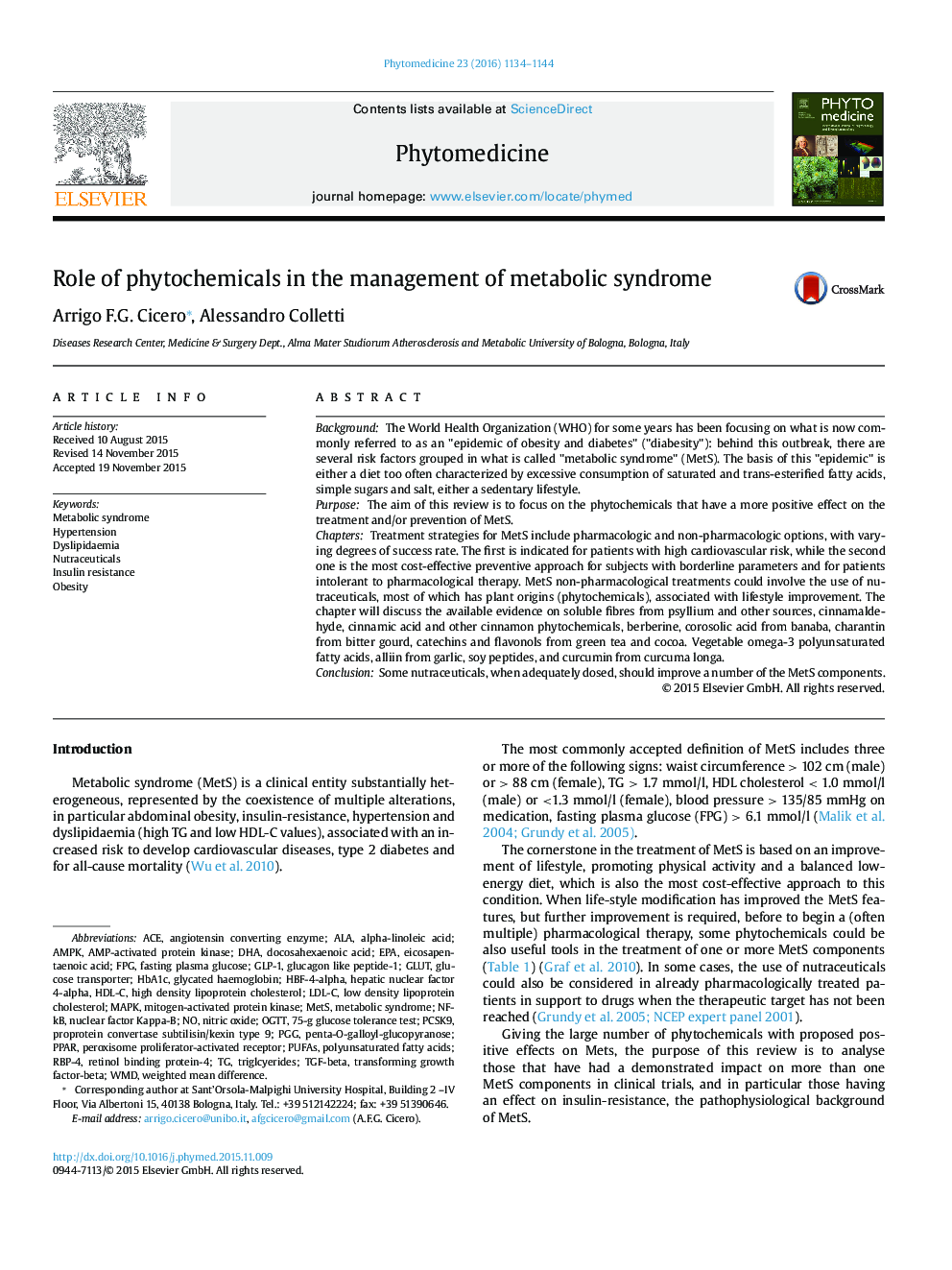| Article ID | Journal | Published Year | Pages | File Type |
|---|---|---|---|---|
| 2496198 | Phytomedicine | 2016 | 11 Pages |
BackgroundThe World Health Organization (WHO) for some years has been focusing on what is now commonly referred to as an "epidemic of obesity and diabetes" ("diabesity"): behind this outbreak, there are several risk factors grouped in what is called "metabolic syndrome" (MetS). The basis of this "epidemic" is either a diet too often characterized by excessive consumption of saturated and trans-esterified fatty acids, simple sugars and salt, either a sedentary lifestyle.PurposeThe aim of this review is to focus on the phytochemicals that have a more positive effect on the treatment and/or prevention of MetS.ChaptersTreatment strategies for MetS include pharmacologic and non-pharmacologic options, with varying degrees of success rate. The first is indicated for patients with high cardiovascular risk, while the second one is the most cost-effective preventive approach for subjects with borderline parameters and for patients intolerant to pharmacological therapy. MetS non-pharmacological treatments could involve the use of nutraceuticals, most of which has plant origins (phytochemicals), associated with lifestyle improvement. The chapter will discuss the available evidence on soluble fibres from psyllium and other sources, cinnamaldehyde, cinnamic acid and other cinnamon phytochemicals, berberine, corosolic acid from banaba, charantin from bitter gourd, catechins and flavonols from green tea and cocoa. Vegetable omega-3 polyunsaturated fatty acids, alliin from garlic, soy peptides, and curcumin from curcuma longa.ConclusionSome nutraceuticals, when adequately dosed, should improve a number of the MetS components.
Graphical abstractFigure optionsDownload full-size imageDownload high-quality image (257 K)Download as PowerPoint slide
